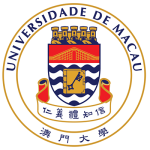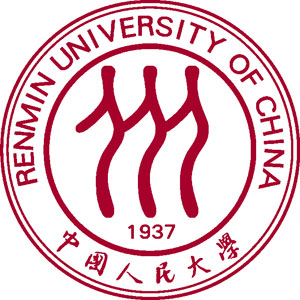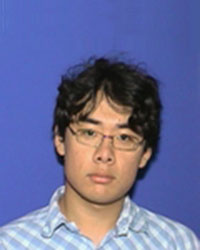
Nan Zhang (Waim2014 DYL and Summer School Instructor)
Waim2014 DYL Talk: Big Data in the Deep Web: Exploration, Mining and Privacy Preservation
Summer School Talk: Exploration and Privacy Preservation Over Deep Web Databases
Abstract: A large number of online databases are hidden in the “deep web” and only accessible through restrictive search or browsing web interfaces. We consider third-party data analytics over these hidden databases, specifically, how to break through the barrier set forth by the restrictive web interfaces to truly gauge the value of deep web data through crawling, sampling, and aggregate estimations. We also explain how the recent advancements of such data analytics techniques pose significant privacy threats to certain sensitive aggregate information over hidden databases. The protection of sensitive aggregates stands in sharp contrast to the traditional privacy problem where individual tuples must be protected while ensuring access to aggregating information. We propose privacy-preserving techniques to suppress the inference of aggregate information from hidden databases.
Short Bio: Dr. Nan Zhang is an Associate Professor of Computer Science at the George Washington University, Washington, DC, USA. He received the B.S. degree from Peking University in 2001 and the Ph.D. degree from Texas A&M University in 2006, both in computer science. His current research interests include databases and information privacy. He received the NSF CAREER award in 2008.
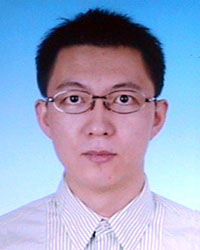
Gao Cong (Waim2014 DYL and Summer School Instructor)
Waim2014 DYL Talk: Data Management and Analytics for Geo-textual Data from Social Media Feeds.
Abstract: Massive amount of geo-textual data are being generated at an unprecedented scale from social media websites. Example user generated geo-textual content includes geo-tagged micro-blogs, photos with both tags and geo-locations in social photo sharing websites, as well as points of interest (POIs) and check-in information on places in location-based social networks. This talk presents recent results on querying and mining Geo-textual Data from Social Media Feeds by the speaker and his colleagues. The talk will cover indexing and querying geo-textual data, POI recommendations, and mining user mobility behaviors from geo-textual data.
Summer School Talk: Indexing and Querying Geo-textual data
Abstract: Massive amount of data that are geo-tagged and associated with text information are being generated at an unprecedented scale. First, increasing volume of user generated content on the Web is being associated with geo-locations. Example user generated content includes geo-tagged micro-blogs (e.g., Twitter), photos with both tags and geo-locations in social photo sharing websites (e.g., Flickr), and check-in information on places in location-based social networks (e.g., FourSquare). Second, points of interest are increasingly associated with text in local search services and online yellow pages.
This development calls for techniques that enable the indexing of data that contains both text descriptions and geo-locations in order to support the efficient processing of spatial-keyword queries that take a geo-location or a region and a set of keywords as arguments and return relevant content that matches the arguments. A number of geo-textual indices have been developed and different types of spatial-keyword queries are proposed to meet the various needs of users. The talk covers recent results on spatial-keyword querying based on geo-textual indices.
Short Bio:Gao Cong is currently an Assistant Professor in the School of Computer Engineering, Nanyang Technological University (NTU). Before joining NTU, he was an Assistant professor in Aalborg University, Denmark. Before that, he worked as a researcher at Microsoft Research Asia. From 2004 to 2006, he worked as a postdoc research fellow in University of Edinburgh. He received his Ph.D. in Computer Science from National University of Singapore in 2004. His current research interests include geo-textual data management and mining social media. His work was published in ACM SIGMOD, VLDB, ACM KDD, ICDE, WWW, ACM SIGIR, ACM CIKM, ACL, etc. He served as a PC co-chair for E&A track of VLDB 2014, and served on many program committees of international conferences.
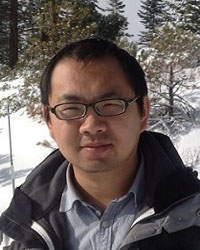
Jian Li (Waim2014 DYL and Summer School Instructor)
Waim2014 DYL Talk: Multi-armed bandit problems and applications
Abstract: I will give a brief introduction to the multi-armed bandit problem and some of it variants, and some of their applications in databases, crowdsourcing and information retrieval.
Summer School Talk: Handling Uncertainty in Data Management
Abstract: Almost all important decision problems are inevitably subject to some level of uncertainty either about data measurements, the parameters, or predictions describing future evolution. The significance of handling uncertainty is further amplified by the large volume of uncertain data automatically generated by modern data gathering or integration systems. Various types of problems of decision making under uncertainty have been subject to extensive research in computer science, economics and social science. In this talk, I will suvery some recent research efforts on dealing with uncertain data in database community and algorithm community.
Short Bio:Jian Li is currently an assistant professor at Institute for Interdisciplinary Information Sciences (IIIS, previously ITCS), Tsinghua University, headed by Prof. Andrew Yao. He got his BSc degree from Sun Yat-sen (Zhongshan) University, China, MSc degree in computer science from Fudan University (advisors: Hong Zhu, Rudolf Fleischer), China and PhD degree in the University of Maryland, USA (advisors: Amol Desphande and Samir Khuller). His major research interests lie in the broad area of theoretical computer science, in particular algorithm design and analysis, and the algorithmic and theoretical aspects of databases, machine learning and networking. He co-authored several research papers that have been published in major computer science conferences and journals.
He received the best paper awards at VLDB 2009 and ESA 2010.
He is also a recipient of the “221 Basic Research Plan for Young Faculties” at Tsinghua University and the “new century excellent talents award” by Ministry of Education of China.

